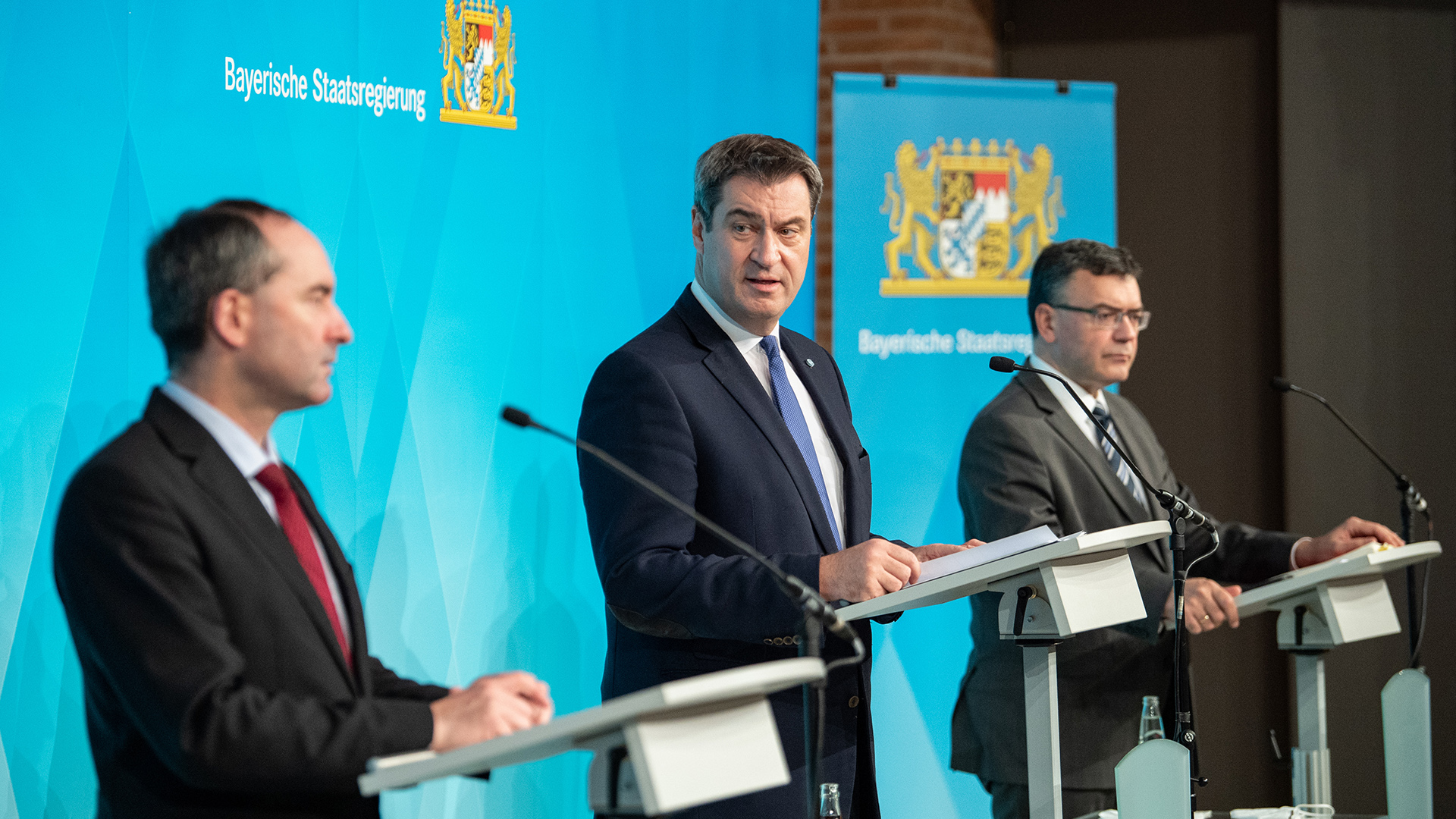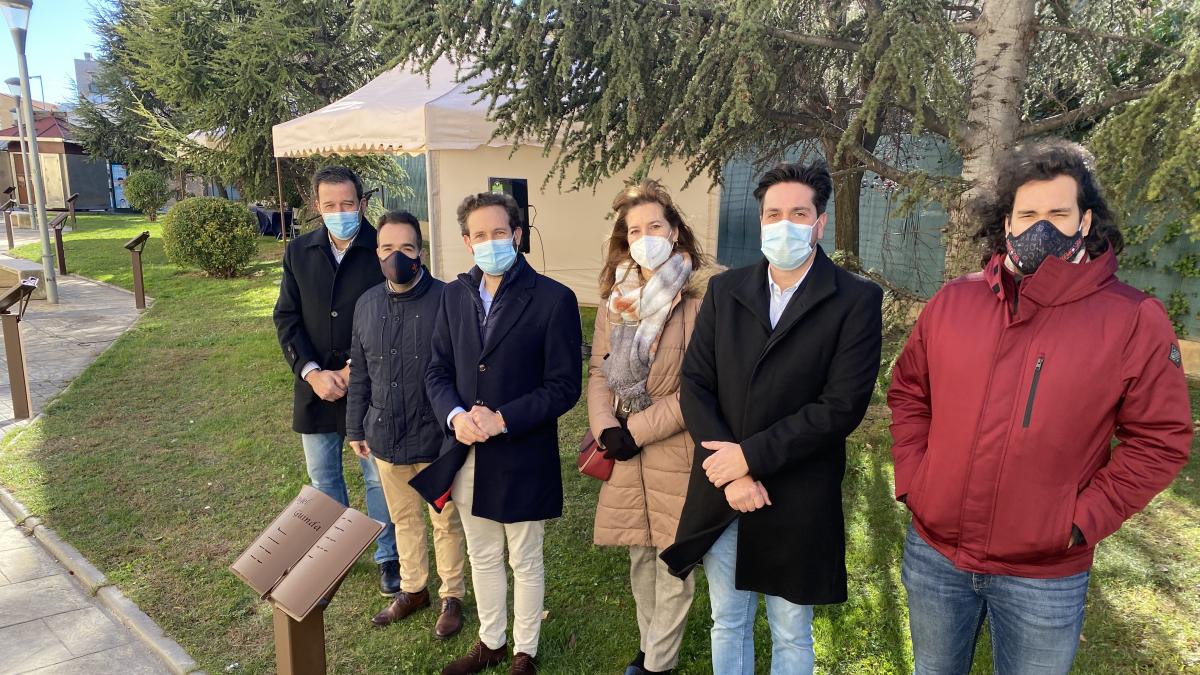Bavaria wants to tighten the corona measures significantly. Likewise Thuringia: There should be no easing over the holidays. Hesse’s Prime Minister Bouffier spoke in the “Report from Berlin“for local solutions.
In view of the consistently high number of new corona infections in the Free State, Bavaria is tightening the measures to combat the pandemic. After a special meeting of his cabinet, Prime Minister Markus Söder presented a ten-point plan that should apply from Wednesday to the beginning of January – if the Bavarian state parliament approves on Tuesday.
The Free State then calls for a disaster again and tightened the contact restrictions that are already in place: people should then only leave their homes for good reason – for work or shopping, for example. In hotspots with an incidence of 200 new weekly infections per 100,000 inhabitants, there is a curfew between 9 p.m. and 5 a.m. Furthermore, a maximum of five people should be allowed to meet.
There should be an exception at Christmas, when a maximum of ten people from up to ten households can come together. The originally planned easing on New Year’s Eve should not take place in Bavaria. In addition, there is then a ban on alcohol in the open air.
“The numbers have to go down,” affirmed the CSU boss. Otherwise there is a risk of overloading the health system. In some regions this is already the case. The high number of deaths is not morally justifiable. Now is the right time to act consistently. “Better to be shorter and clearer, but with perspective,” said Söder.
Focus on schools and nursing homes
The situation at the schools and the question of whether these should be assessed as hotspots are particularly discussed. Söder, in Bavaria, there are “stronger contacts”, especially in the higher age groups. Therefore, all vocational schools should end classroom teaching from Wednesday. From the eighth grade onwards, alternating lessons should take place everywhere. In hotspots with an incidence of 200 or more, students should switch completely to distance learning from the eighth grade.
Söder called the situation in the nursing homes particularly dramatic. For this reason, visitors should only be allowed to enter nursing homes with a negative test and an FFP2 mask. Employees should be tested twice a week. There should also be an FFP2 mask requirement for visitors in hospitals.
So that the partly overloaded health authorities can continue to pursue them, they should be supported by the police, among other things. Employers are called upon to enable home office wherever possible.
Thuringia also tightened
Thuringia even goes one step further than Bavaria, at least as far as the holidays are concerned: Contrary to what was planned, there should not be any relaxation of the corona measures over Christmas either. “There will be no relief for Christmas and New Year’s Eve”, quoted the Thuringian newspapers of the Funke media group Prime Minister Bodo Ramelow. In his opinion, nothing else is possible in view of the high number of infections. State Chancellor Benjamin-Immanuel Hoff confirmed that the cabinet would discuss it on Tuesday.
This would mean that the current regulations of the Thuringian Corona Containment Ordinance would also apply over the festive period. Accordingly, “private get-togethers that take place in one’s own home should be restricted to members of one’s own household and another household up to a group size of five people at most”. Children up to 14 years are not counted.
Hessen relies on hotspot control
Unlike his counterpart Ramelow, Hesse’s Prime Minister Volker Bouffier is relying on local measures. In the “Report from Berlin” the CDU politician said that in the hotspots one would have to think about a curfew. “Wherever there is a lot of action, we may have to continue to restrict,” said Bouffier. In other areas with a low incidence, however, such restrictions make little sense.
Infections stay high
The number of infections with the coronavirus in Germany is stagnating at a high level. According to the Robert Koch Institute (RKI), the health authorities reported 17,767 new corona infections within 24 hours. The number of cases recorded is usually lower on Sundays, partly because fewer tests are carried out on the weekend. A week ago, the value was 14,611 new infections reported in one day.
In addition, 255 further deaths in connection with a corona infection were reported. This brings the number to 18,772 deaths since the pandemic began. According to the RKI, a total of 1,171,322 people have been proven to be infected with the virus.
According to the RKI management report on Saturday, the so-called seven-day R-value was 1.10. This means that 100 infected people theoretically infect 110 more people. The previous day the value was 1.04. The value represents the occurrence of the infection 8 to 16 days ago. If it is below 1.0 for a long time, the infection rate subsides.


